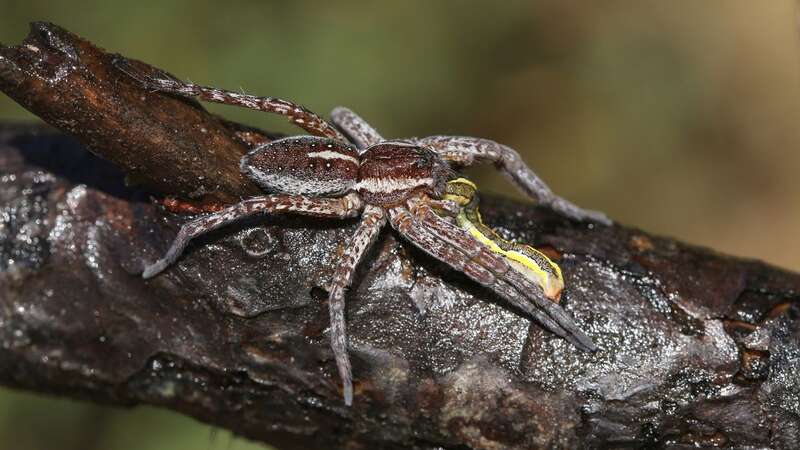
Fen raft spiders - palm-sized creatures with the ability to eat fish - have been sighted in the UK once again.
Once on the verge of extinction in Britain, these huge arachnids are making a comeback. The sighting of one of these three-inch-long behemoths was confirmed last month by the Suffolk Wildlife Trust. Luckily, there's little chance of them being discovered in homes across the nation.
A decade ago, this semiaquatic species was teetering on the brink of extinction in Britain. But thanks to conservation efforts spearheaded by the RSPB, British Arachnological Society, Suffolk and Sussex Wildlife Trusts, Natural England, and the Broads Authority, their population numbers are on the rise again.
In response to posts from the Suffolk Wildlife Trust about the spider being sighted again, some nature fanatics said they would be venturing out to witness the creatures first-hand. One social media user remarked: "It's so good they are here nearby, a challenge to spot; but once they've built their nest for their spidering s they are easier to find. [SIC]" Another hoped they would be "lucky" enough to see one.
Suffolk Wildlife Trust North East Reserves posted a video and image of the spider, adding: "Fen raft spiders starting to appear on the Dyke networks of the Lower Waveney Valley. This one was battling the wind even on this sheltered Dyke line."
 Man fined £165 after outraging the internet by dying puppy to look like Pikachu
Man fined £165 after outraging the internet by dying puppy to look like Pikachu
The Friends of Shapwick Heath National Nature Reserve group on Facebook also shared an image of a fen raft spider last month, writing with it: "Fen raft spiders have also been spotted along with lots of other signs of spring."
The arachnid still holds protected status under the Wildlife and Countryside Act due to being at high risk of extinction. Until 2010, just three populations existed in the UK, putting the species on precarious ground. However, a reintroduction programme initiated at Castle Marshes nature reserve saw around 3,000 spiderlings bred, reared, and subsequently released into Suffolk Wildlife Trust's dykes.
Read more similar news:
Comments:
comments powered by Disqus





























